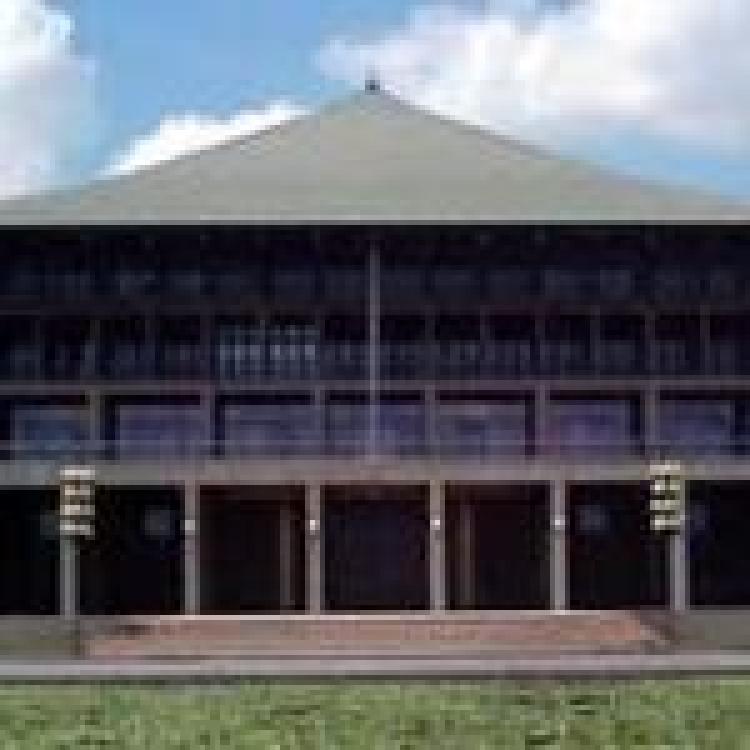![]()
The leader of the extremist Buddhist monk group Bodu Bala Sena, who was recently released from prison following a presidential pardon pledged to expose Islamist militancy in his first press conference since being freed.
Galagoda Aththe Gnanasara accused Saudi Arabia's intelligence of working to promote Wahhabism in Sri Lanka, intimating they were indirectly responsible for the Easter Sunday bombings by Islamist extremists which killed over 250 people.
“I urge the government to arrest the main people responsible for the spreading of Wahhabism,” Gnanasara said, naming an individual called 'Abdul Rahman'.
He accused Rahman of having close connections with Zahran Hashim, the suicide bomber responsible for the attack on the Shangri-La Hotel in Colombo and the leader of the now banned National Thowheed Jamath (NTJ) group.
Calling on the security forces to arrest relevant people, he commented on the recent incident of a Kurunegala doctor accused by Sinhala media of conducted forced sterilisation, saying, "I urge the government to arrest the main people responsible for the spreading of Wahhabism."
"There is a far worse group of persons within the state mechanism and that it is dangerous."
![]()
St Anthony's Church, Colombo
Over 250 people were killed when Islamist extremist suicide bombers supportive of Islamic State detonated devices at luxury hotels and churches on Easter Sunday.
There has been increasing criticism over the government's failure to take action to prevent the attacks after it emerged India had warned Sri Lankan authorities repeatedly in the preceding weeks that such an incident was planned.
Questions have also been raised over the organisations' links with government security forces and intelligence, with reports that the intelligence authorities funded NTJ.
Earlier this month a Sri Lankan parliamentarian said the former defence secretary Gotabaya Rajapaksa gave NTJ land for an office in Colombo.
Kurunegala District UNP MP Thushara Indunil however claimed that the NTJ received support from Rajapaksa, who announced that he would the running for president in elections set to be held later this year.
Indunil said the All Ceylon Jamiyathul Ulema had warned the Sri Lankan government “as early as 2014” about the emergence of the NTJ and Islamic extremists on the island. “If the former Defence Secretary was privy to this information, we ask of what he did then, knowing the threats it posed,” he said.
Read more: Gotabaya gave NTJ office in Colombo, claims Sri Lankan MP
“He tried to divide the peaceful community of Muslims into two. He knew that it would help him in his political endeavours which is why he strengthened one group against the other. Basil Rajapaksa said that there are 200 such mosques and the defence secretary assisted in setting them up.”
One Sri Lankan soldier is currently on the run after authorities said they believed he had taught the attackers how to use explosives.
Cabinet spokesperson Rajitha Senaratne said that at least four army officers were involved in organising the assassination of police officers in Batticaloa last year, and claimed dozens of NTJ were on the payroll of Sri Lankan intelligence linked to Rajapaksa.
Read more: NTJ paid by Sri Lankan intelligence, soldiers organised police murder - cabinet spokesperson

